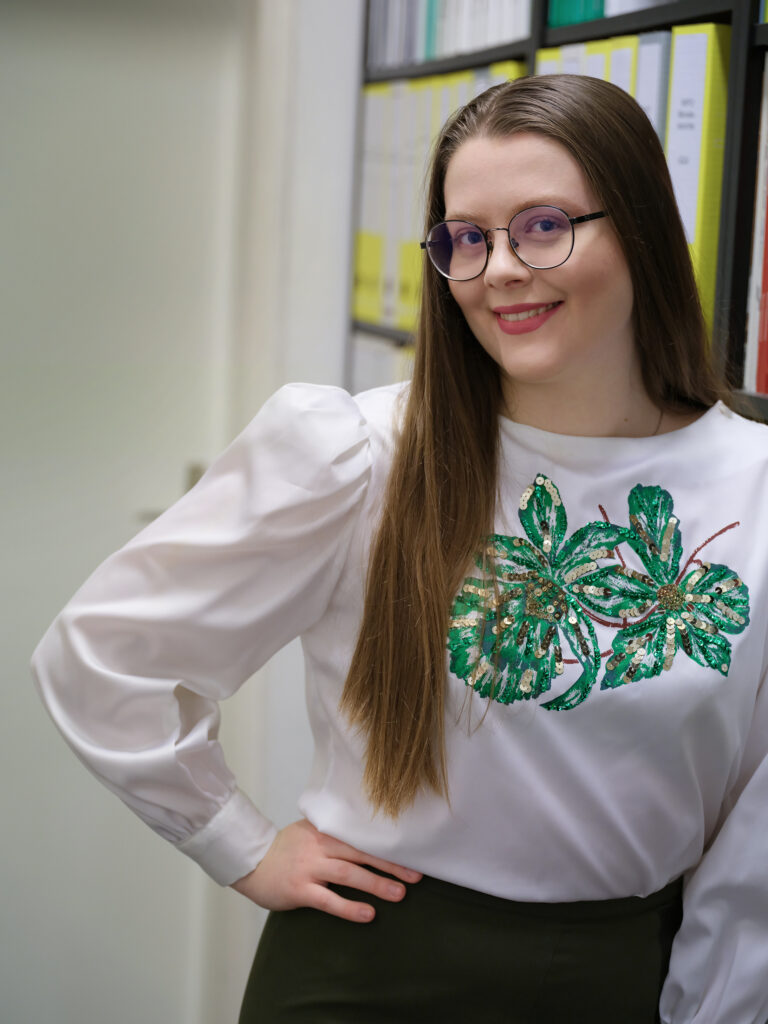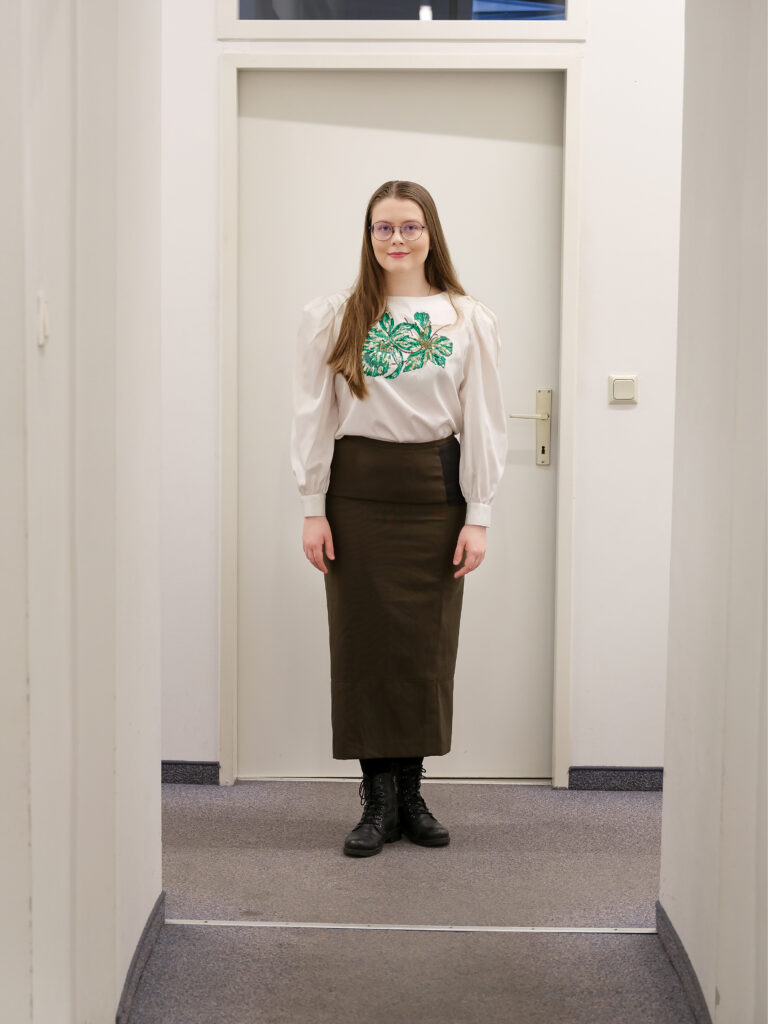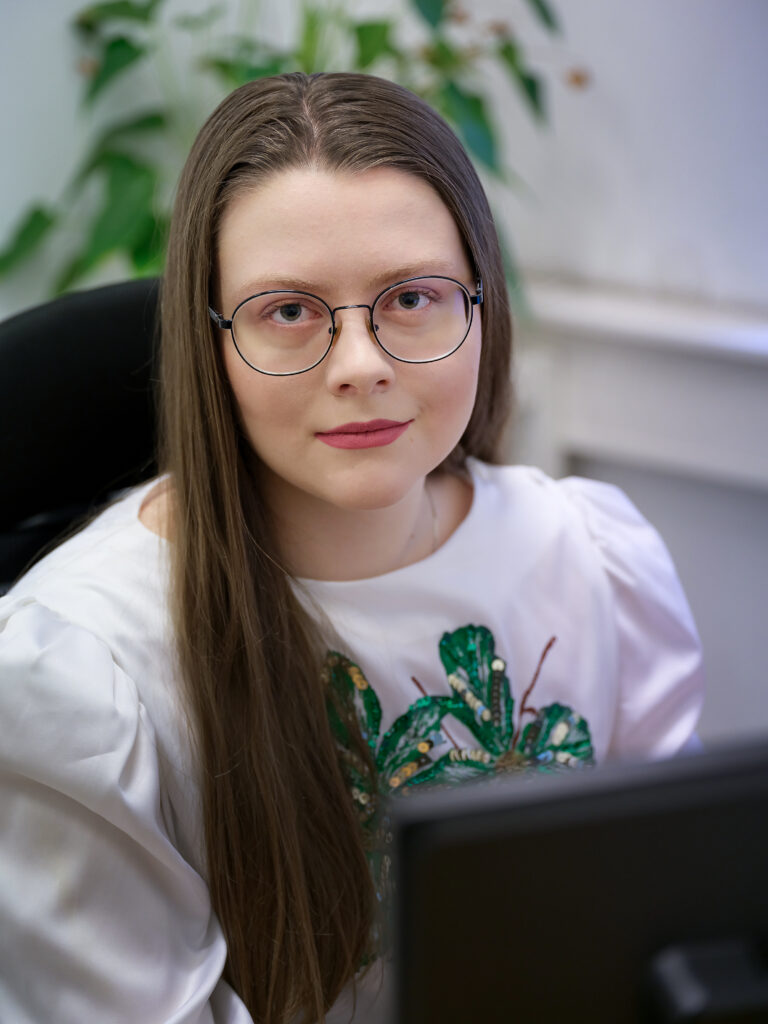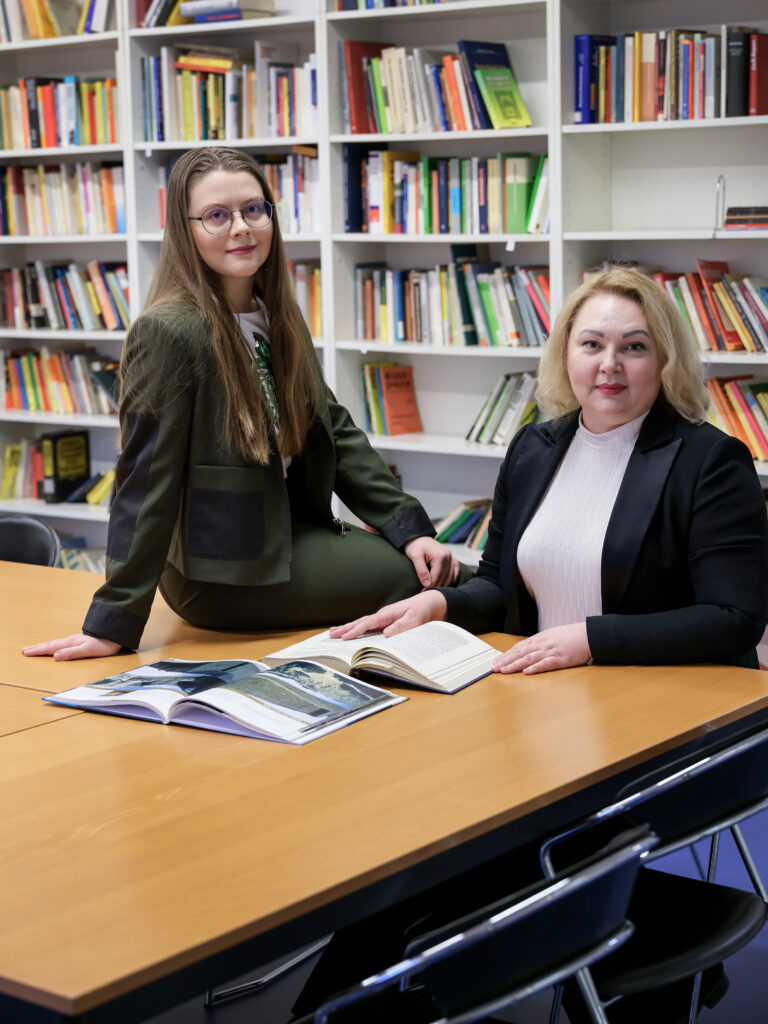
17 February 2025
Anna Pasko: “The project creators are doing their best to accommodate our needs and interests while fostering a sense of community”
Anna Pasko, Professional Integration HUB 2.0 Program Participant (L&R Social Research)
Intro
- Age: 24 years old
- City in Ukraine where you lived before the full-scale invasion (forced relocation):
Donetsk, then in 2017 moved as an internally displaced person to Lyman, Donetsk oblast which was my primary residence place in Ukraine before the February 2022 full-scale invasion - Specialization: International Relations, Public Administration
PROFESSIONAL BACKGROUND
A 2014 conflict awakened my interest in the causes of international conflicts and how to resolve them, and the state of affairs in Ukraine guided me into diplomacy. I studied international relations; in parallel, I was on the organizing team of the Model United Nations and conducted an internship at UNICEF. Later, I focused on public policy implementation and obtained a master’s in public administration. In addition to that, I have experience in marketing and administrative support in an Austrian waste management firm. However, I have always wanted to work in my field, and an internship at L&R Social Research allowed me to pursue an internship in my interest and qualifications.
FORCED EMIGRATION
I had a sleepless night, as it was my midterm period, and I was struggling with Impact Evaluation and R class. While scrolling through my Instagram feed, I came across stories from Kyiv. Just a few weeks earlier, my mom and I had discussed the panic surrounding the Embassy closures and the lineup of russian tanks and military personnel on the border. At the time, we thought it was just a joke, and the panic surrounding those events seemed like an overreaction.
Although we were both internally displaced persons at the time, and foreign tanks on our soil weren’t entirely new since 2014, the fact that a full invasion occurred in 2022 came as a shock. At that moment, many people assumed the conflict would remain ‘indefinitely frozen,’ like Transnistria and Moldova. It seemed illogical that the russian federation would go further, as its primary objective of preventing Ukraine from joining NATO had already been achieved.
Nonetheless, it happened. After having coffee, answering several phone calls, and texting back all my friends, relatives, and acquaintances who were concerned about my safety, I decided to finish an assignment. But instead, I ended up looking for my first mini-job. Within two days, I found one, leading to my first contract employment.

The support I received was tremendous, and the job, along with the financial support, was invaluable. I consider myself a fortunate person.
LIFE IN AUSTRIA
Like most national countries, the Austrian labor market requires its labor force to possess an adequate level of German. Most forced migrants were not planning or prepared to move to Austria and, therefore, had little German skills. Unfortunately, getting a sponsorship for them is not relatively as easy. For example, receiving an AMS-sponsored course would require an Austrian-accredited or recognized diploma and a lot of work experience in Austria. It is challenging to find employment in your field without prior experience in the field and the country of destination. The Ukrainian Professional HUB internship program is essential to us; it proves that we are competent, capable, result-oriented, and reliable workers. It is a step above the migrant welfare recipients’ no-namers status many of us find ourselves in.

One benefit of being in Vienna is access to international organizations, research institutions, and think tanks that research and develop policies. On the other hand, proving one’s worth is quite labour-intensive. Receiving a recommendation from L&R Social Research would significantly strengthen my profile and put a firm foot in the door of the research institute in the policy area of my interest.
Professional Integration HUB
I heard about the program from my fellow CEU Public Policy cohort student, Oleksandr Chermnykh. Although I didn’t get in on my first attempt, I was accepted the second time, despite difficulties with my visa. I was thrilled to be accepted into the program.
Initially, I expected it to be just a two- to three-month placement in an organization, but it’s so much more than that. Our organisators care for us like mothers would care for their children. We have tailored, professional-development-oriented webinars, intensive language training, workshops, community-building sessions, and study visits, in addition to our internship activities. The project creators are doing their best to accommodate our needs and interests while fostering a sense of community, belonging, and a feeling of ‘home.’

One of the most pleasant surprises was working with Austrians. Our hosts were friendly, enjoyable, and welcoming, both at the workplace and during our visits to the Ministries, Graz, and Salzburg. The working atmosphere is very relaxed, with flexible working hours and linear employee relations. I had expected more authority and a military-like structure, but I was pleased to see that people could work effectively in such a democratic environment.
PLANS AFTER PARTICIPATING IN THE PROGRAM
The professional Integration HUB internship program has certainly boosted my self-confidence. I am more prepared and determined to apply to positions within my specialization. Before starting the internship, I had difficulty accepting my strengths and limitations and selecting my path. There was a moment of despair when I almost accepted an electrical car driver position at one of the biggest furniture stores. However, participating in this program reinforced my belief in my strengths and qualifications and the importance of social research for public policy and the common good.
This internship program has contributed immensely to my professional integration. Now, I can express myself freely in conversation with colleagues; I feel accepted as an equal, a qualified professional, and not just a migrant to laugh at. I hope an internship like this would convince Austrian and European professional communities that Ukrainians are adequate and reliable partners suitable to work with.
Photos: Valerie Loudon